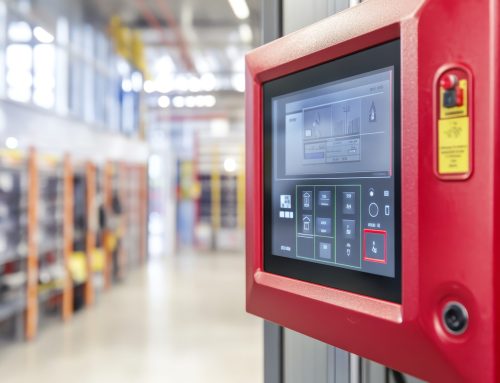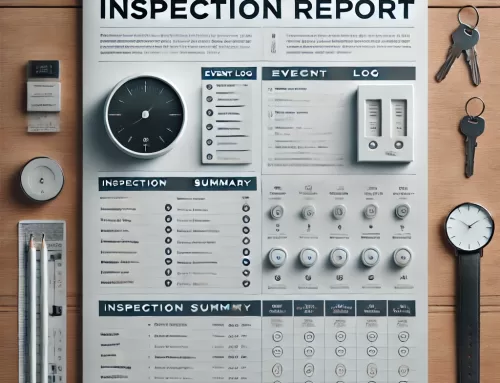When it comes to safeguarding your business, choosing the right commercial fire alarm system is a critical decision. An effective fire alarm system not only protects lives and property but also ensures compliance with regulations and, in some cases, can even reduce insurance premiums. However, with so many fire alarm system options available, making the right choice can be daunting. This guide aims to simplify the decision-making process by highlighting key considerations and steps you as a business owner can take to select the most suitable fire alarm system for your specific business needs.
Understanding the Basics
It’s helpful to start with a few basics of fire alarm systems before you begin your search. Choosing a trusted fire protection company is also part of this first step. If you can educate yourself on the types of fire alarm systems, the fire protection company you choose should be able to help you then navigate those options. The main types of fire alarm systems include:
- Conventional Fire Alarm Systems: These systems divide the premises into zones. When a detector or call point within a zone is triggered, the control panel identifies the affected zone but not the specific device. They are suitable for smaller businesses or simpler layouts.
- Addressable Fire Alarm Systems: These systems offer more precision, with each device having a unique address. This allows the control panel to pinpoint the exact location of the fire. They are ideal for larger or more complex buildings.
- Wireless Fire Alarm Systems: These systems use radio signals to communicate between devices and the control panel, making them easier and cheaper to install, especially in historic buildings or places where wiring is difficult.
- Aspirating Smoke Detection Systems: These advanced systems use a network of pipes to draw air samples to a central detection unit. They are highly sensitive and suitable for environments where early detection is critical, such as data centers or clean rooms.
Assessing Your Business Needs
It’s critical to consider the individual needs of your business when considering fire alarm systems. The layout and overall unique environment of your building determine many key criteria you’ll need to consider when choosing the ideal fire alarm system. Assess your individual business needs to create a sort of checklist to guide your decision making.
Building Size and Layout
The size and layout of your building significantly impact the type of fire alarm system you need. For instance:
- Small Offices or Retail Stores: Conventional systems may suffice, providing adequate coverage without excessive complexity.
- Large Facilities or Multi-Building Sites: Addressable or wireless systems are more appropriate due to their ability to precisely locate incidents and flexibility in installation.
Specific Risks and Requirements
Different businesses have varying fire risks and regulatory requirements. Consider the following:
- High-Risk Environments: Industries like manufacturing, where flammable materials are present, might need more sophisticated systems like aspirating smoke detectors.
- Public Access Buildings: Places like hospitals or shopping malls require systems that ensure comprehensive coverage and clear evacuation procedures.
Regulatory Compliance
Compliance with local fire codes and standards, such as those from the National Fire Protection Association (NFPA), is mandatory. Consulting with a fire safety expert or local fire marshal can help ensure your system meets all regulatory requirements.
Key Features to Consider
Once you better understand the options available to you, and the needs of your facility, it’s helpful to comb through some key features of some fire alarm systems. Many features are unique to specific system types, such as customization options, integration capabilities, and more.
Detection and Alerting Capabilities
- Multi-Sensor Detectors: Combine smoke, heat, and carbon monoxide detection, reducing false alarms and increasing detection accuracy.
- Integration with Other Systems: Ensure the fire alarm system can integrate with other safety systems, such as sprinklers, HVAC controls, and security systems, for a coordinated response.
Scalability and Flexibility
- Future Expansion: Choose a system that can be easily expanded as your business grows. Addressable and wireless systems are typically more scalable.
- Customization: Systems that allow for customization based on specific business needs and changes in layout or function are advantageous.
Maintenance and Monitoring
- Ease of Maintenance: Opt for systems with self-diagnostic features and easy-to-replace components to minimize downtime.
- Professional Monitoring: Consider systems that offer 24/7 professional monitoring services to ensure immediate response even when the building is unoccupied.
Budget Considerations
Cost is an important component of the decision-making process when choosing a fire alarm system for your business. To make the best cost-effective decision, consider long-term cost that includes costs beyond installation, for example, maintenance, monitoring, etc. In many cases, it might be in your best interest to choose an advanced system that costs a little more when you weigh the initial vs long term value. Ask about financing options and service bundling discounts if working with an all services fire protection company.
Initial Costs vs. Long-Term Value
While it may be tempting to choose a less expensive system, consider the long-term benefits and savings. Higher initial costs for advanced systems can be offset by reduced maintenance expenses, lower insurance premiums, and enhanced protection of valuable assets.
Financing Options
Explore financing options or leasing plans offered by fire alarm system providers which can help manage upfront costs while ensuring your business is protected by a high-quality system. Ask your trusted fire protection provider about discounts, bundling services, and monitoring services if applicable.
Steps to Making the Right Choice
The research is done, the budget is set. To make the right choice, take time to conduct some more thorough assessments to ensure you’re making the best decision. It may seem excessive, but keep in mind that a fire alarm system is there to protect your entire facility from the devastating effects of fire. Your business and employees are worth too much to leave a decision like this to chance. Take these additional steps to feel more confident in your decision.
1. Conduct a Risk Assessment
Start with a comprehensive risk assessment of your premises. Identify areas of high risk, critical assets, and any unique challenges your business might face in case of a fire.
2. Consult with Experts
Engage with fire safety consultants or system integrators. Their expertise can provide insights into the latest technologies, regulatory requirements, and optimal system design for your specific needs. Take your time in choosing a reputable, local fire protection company.
3. Request Proposals
Contact a qualified vendor with proper licensing in both your state and county in which you live. Request a proposal and consider the following before hiring:
- System Features: Ensure the proposals meet all your detection, alerting, and integration needs.
- Cost Breakdown: Understand the full cost, including installation, maintenance, and any potential hidden fees.
- Service and Support: Evaluate the vendor’s reputation for service, support, and response times.
4. Site Visit and Demonstration
Many fire protection companies allow you to request a site visit and system demonstration. This will help you visualize how the system will be installed and operate in your specific environment. Ask questions about the system and how it’s going to work in your space.
5. Plan for Installation and Training
Once you’ve selected a system, plan the installation process to minimize disruption to your business. Ensure comprehensive training for your staff on how to operate and respond to the fire alarm system. Ask the fire protection company or vendor if they provide free employee and staff training on the new system, as many do.
6. Regular Review and Updates
Finally, remember that fire safety is an ongoing responsibility. Regularly review and update your fire alarm system to accommodate any changes in your business operations, layout, or fire safety regulations. Your fire protection company may be able to help you to manage your required maintenance visits and other necessary inspections.
Fire Systems, Inc.
Choosing the right commercial fire alarm system is a critical decision that impacts the safety, compliance, and financial health of your business. By understanding your specific needs, consulting with experts, and carefully evaluating your options, you can make an informed decision that ensures comprehensive protection for your business. Prioritize a system that offers reliability, scalability, and integration capabilities, and remember that investing in quality fire protection is ultimately an investment in the future of your business.
Fire Systems, Inc. has been in the fire alarm business for well over 30 years. Let us pass on our decades of expertise to you when going through the decision-making process for a fire alarm system. It’s not a decision to be taken lightly, and our team of highly trained and certified professionals are here to help. We are an Atlanta-based, all-services fire protection company. We offer fire alarm installation, inspection, and repair, as well as 24/7 monitoring. Streamline your entire building’s fire protection needs and hire us to keep your business safe. Contact us today at 770-333-7979 or visit our website for more information. We look forward to speaking with you soon.






